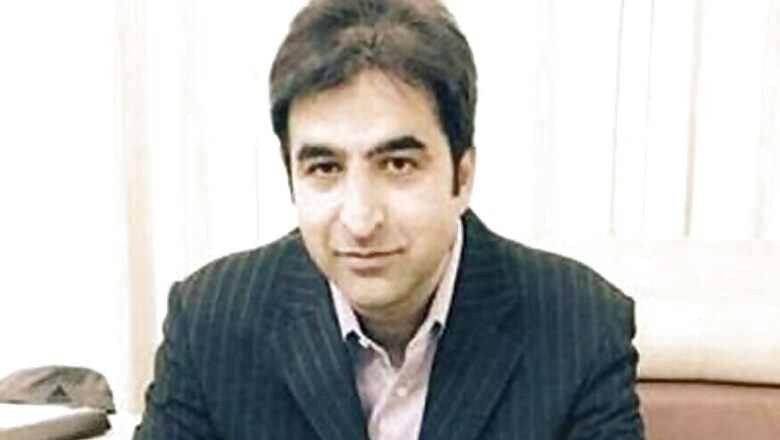
views
New Delhi: As the Supreme Court will soon begin hearing a case on the validity of Article 35A of the Constitution, Advocate General of Jammu and Kashmir, Jahangir Iqbal Ganai told News18 that the "petition is flawed as the President never amended the Constitution by this Article as it was a mere exception".
Ganai further says that "Article 35A is not a part of the Indian Constitution, but part of the Constitution of India pertaining to Jammu and Kashmir."
The much-debated Article 35A gives a ‘special status’ to residents of Jammu and Kashmir apart from defining who the ‘permanent residents’ of the state are. The Supreme Court will be hearing a clutch of petitions challenging the provision.
"The very basis of the petition challenging 35A is not supported by law. They say that it's an amendment and the President cannot amend the Constitution of India. But we say that it is not an amendment as it's not a part of the Constitution of India but it's a part of the Indian Constitution that was for J&K. By applying the Constitutional provisions to the state of J&K, the Constitution itself gives power to the President to apply the provisions of the Constitution by exceptions and modifications. So 35A is an exception to the chapter pertaining to the fundamental rights," Ganai told News18.
However, the petition against Article 35A challenges the Constitutional validity of orders passed by the President, first limiting the powers of Parliament to make laws for Jammu and Kashmir and then allowing the provision on permanent settlement.
“The President of India under the garb of a temporary provision i.e. Article 370 (1) cannot amend the Constitution by incorporating a new Article of permanent nature,” reads the petition.
However, Ganai says that according to the Constitution of India, Article 35A is not part of the Constitution, but is a part of the Constitution of India that is applicable to Jammu and Kashmir.
"There is a very fine difference between the two. If one reads any book on the Constitution of India, they wouldn’t find a reference to the Article. Only Article 1 and Article 370 are applicable to J&K, while the other provisions are made applicable only by Presidential orders.
“The first such intervention being made in 1950 and then in 1954. The President had an option to apply the chapter pertaining to fundamental rights to J&K but after deliberating with committees and the central government, Article 35A came into being and thus it is an exception to the chapter on fundamental rights. For an exception, you do not require an amendment to the Constitution of India," the Advocate General, who is also arguing the matter in court, said.
Under Article 370, the President of India has powers to apply the Constitution of India vis-a-vis Jammu and Kashmir, with certain exceptions and modifications. Hence, Ganai says that "Article 35A was an exception to the fundamental rights".
However, on the issue of rights being deprived to the West Pakistan refugees, he stated that the pre-Independence orders “issued by the Maharaja were an impediment to them being recognized as permanent residents”.
"The West Pakistan refugees are not actual residents of Jammu and Kashmir. If you look at the concept of permanent residents, it has its genesis in the initial notification issued by the Maharaja in 1927 and then in 1932. They defined class-I citizens, class-II citizens and the concept of permanent residents. That is the impediment that the Constitution carries forward. They can't be treated as permanent residents because of it. The point of violation of their rights is a debatable issue," said Ganai.
On October 31, the advocate general of India, KK Venugopal, appearing before a Supreme Court bench led by Chief Justice Dipak Misra, said the court should adjourn the hearing on the petitions against Article 35A of the Constitution for six months as the Centre had appointed an interlocutor to discuss the Kashmir issue with its stakeholders. However, the court settled for 12 weeks in its order and now the matter will be heard in February.



















Comments
0 comment